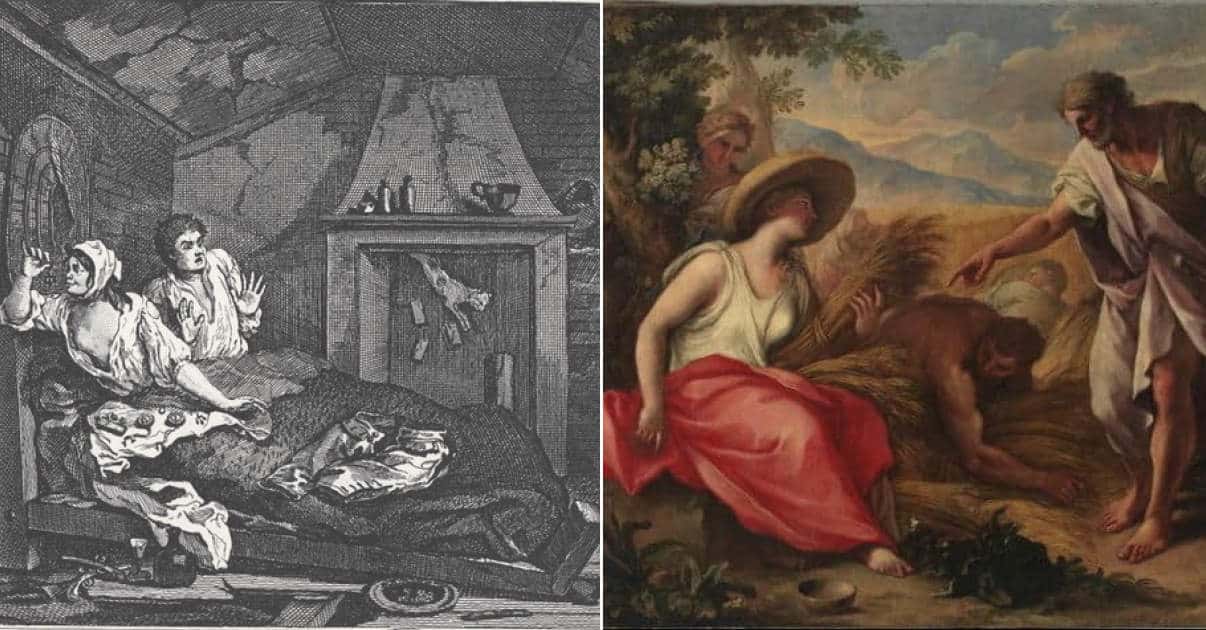In the mid-eighteenth century, prior to the events of the American Revolution, about one of every three young women who walked down the aisle to marry did so while with child, according to extant court and parish records. This rate varies but slightly among the colonies, whether Puritan New England, Quaker Philadelphia or genteel Charleston. By comparison in England, the aptly named mother country, nearly 50% were pregnant when wed. Colonial society often viewed marriage as a business contract and matches were usually arranged based on the fortune, social status, and earning ability of the future husband. Among the arrangers, love was something which would come later, if at all. Husbands and wives had duties to each other and together to the community, the raising of a family among them.

These attitudes stood little chance of prevailing against human nature and emotions. Formal courtship, engagement, and marriage certainly existed and were undoubtedly favored by parents whose children were of marriageable age, but the path was often strayed from through the distractions of hormonal development and physical proximity. In America’s largest towns, all seaports, a thriving sex industry added to the daily pulse of life, and to the alarming rates of venereal disease. As of now, the pulpits raved against illicit and premarital sex. There were severe penalties for sexual crimes and adultery, but the risk of punishment was frequently outweighed by the promises of love and pleasure. Sex in colonial America is an often misunderstood subject, shrouded in myth and a belief in a fictitious morality. Here are ten examples of sexual behavior and practices in colonial America.
Bedboards

Other than along the coast, where the eastern towns were connected by primitive roads and coastal waterways, travel in the colonies was a difficult and tiresome affair. What roads existed were subject to the vagaries of the weather, a fine day for travel could quickly become a day of struggling through a quagmire. Many people were born, grew up, and lived their entire lives within a few miles of the town where their forebears had lived. The people one knew were the people who lived there with them, with occasional visits from relatives or other travelers, often traders and hunters.
Most women in colonial America were considered old enough to begin the courtship rituals at the age of fifteen or sixteen, though most deferred marrying until they were into their twenties. In nearly all communities the young men eligible to call on young ladies were subject to the approval of her parents, and they of course looked upon eligibility using a different set of requirements than those of their daughter. Property and prospects were key. Of course, there were often young men with neither – at least in the opinion of the father – who appeared determined to carry off a girl they had likely known all their lives. Sometimes they prevailed, more often the daughter was presented in an arranged marriage.
Whether arranged or the result of romance, it was customary in many communities for the young couple to complete certain steps during the courtship, one of which was to determine their ability to live together. Living together meant sleeping together, and in a society subject to long, cold winter nights which heated its homes by wood-burning fireplaces, the shared bed was a means of staying warm as well as a place of rest or other activity.
Throughout the colonies, a sort of test drive for marriage, as it were, was arranged once the courtship appeared to have reached the stage to warrant its need. The young man would spend the night in the house of his beloved, with her in her bed, her parents in theirs in a separate room, to determine if the couple was compatible nocturnally. Certain rules applied of course, primarily no touching, and to enforce them the bed was fitted with a board, laid on its edge longitudinally down the bed’s centerline, to keep the young pair apart. Usually, the board was less than one foot in width.
It would have been a very unhealthy couple of youths incapable of surmounting the board under such circumstances, and one wonders how many courtships were shortened, with the wedding date moved up, after a boarding night. There was a social stigma attached to being boarded with more than one beau, and it occurred soon before engagement was formally announced.

